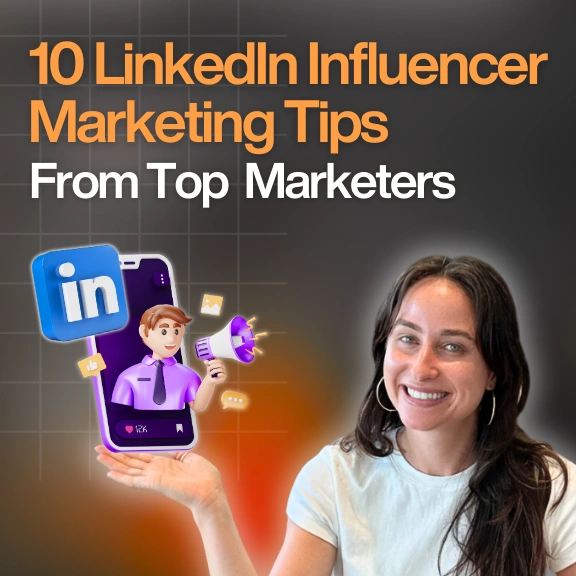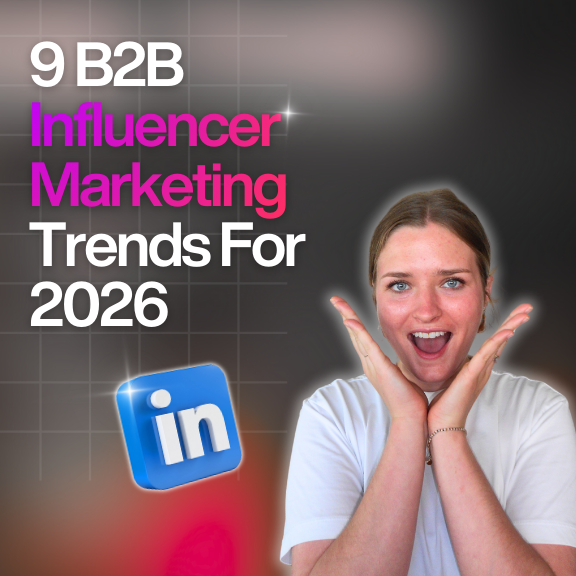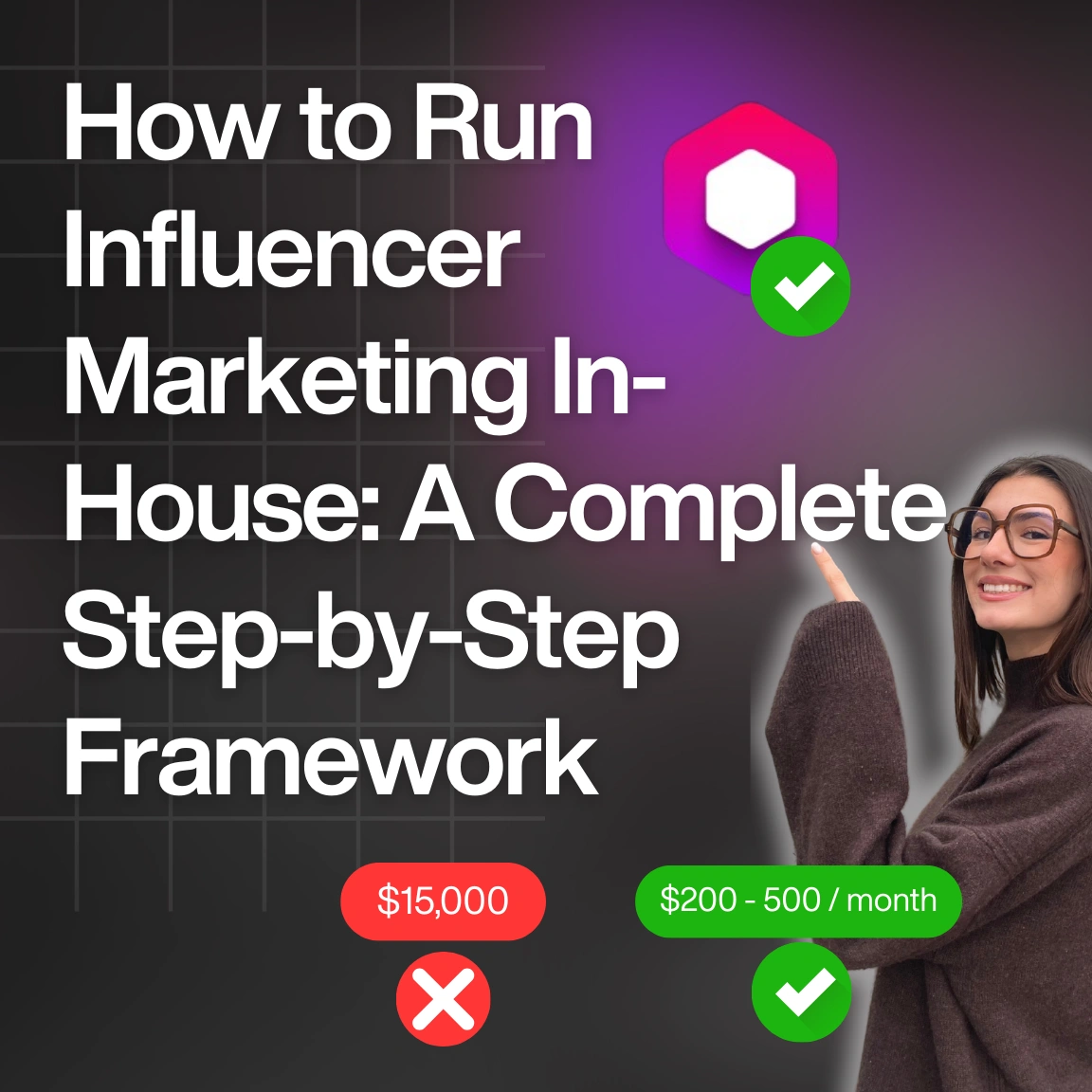Blog & Articles
Your ultimate ressource for the creator economy
Methodology & Rankings
About Favikon, rankings, tools & much more.
Insights
The recipe behind Favikon's viral & coveted rankings.
Free tools to power your influencer marketing workflows.
See Favikon users' success stories.
Get access to all Favikon rankings.
Become a Partner
Become an Affiliate
About the team behind Favikon
The place to talk creator economy, together


Featured Rankings

Here is the Top 50 Rising Video Creators on LinkedIn. Video is quickly becoming the platform’s most powerful format, with creators gaining more reach and engagement than ever. As Gen Z grows its presence and tools like BrandLink and Thought Leader Ads support content creation, LinkedIn is doubling down on video. This ranking, made in partnership with OpusClip, celebrates the creators leading this shift and aims to inspire anyone ready to start sharing through video.

Here is the Top 50 Rising Video Creators on LinkedIn. Video is quickly becoming the platform’s most powerful format, with creators gaining more reach and engagement than ever. As Gen Z grows its presence and tools like BrandLink and Thought Leader Ads support content creation, LinkedIn is doubling down on video. This ranking, made in partnership with OpusClip, celebrates the creators leading this shift and aims to inspire anyone ready to start sharing through video.
B2B Influencer Marketing Agency or Platform?
Navigating the world of B2B influencer marketing can be a daunting task, especially when deciding between using an influencer marketing agency or a platform. Each option has its unique advantages and limitations, and understanding these can help you make an informed choice that aligns with your business objectives.



Sarthak Ahuja is a marketing enthusiast currently contributing to digital marketing strategies at Favikon. An alumnus of ESCP Paris with over 2 years of professional experience, he has held multiple marketing roles across industries. Sarthak's work has been published in journals and websites. He loves to read and write about topics concerning sustainability, business, and marketing. You can find him on LinkedIn and Instagram.
Check Brand DealsNavigating the world of B2B influencer marketing can be a daunting task, especially when deciding between using an influencer marketing agency or a platform. Each option has its unique advantages and limitations, and understanding these can help you make an informed choice that aligns with your business objectives.
Defining Influencer Marketing Agencies and Platforms
Influencer Marketing Agencies are specialized firms that provide end-to-end influencer marketing services. They typically have established relationships with a broad network of influencers and handle all aspects of a campaign, from strategy development to execution and analysis. The leading B2B Influencer marketing agency is Creator Authority. These agencies leverage their expertise and industry connections to curate the right influencers for a brand, manage negotiations, content creation, and performance tracking.
Influencer Marketing Platforms, on the other hand, are software solutions that facilitate the influencer marketing process. These platforms offer tools for businesses to discover, engage, and manage influencers directly. Platforms like Upfluence, AspireIQ, and Favikon provide databases of influencers, analytics tools, and campaign management features, giving businesses more control over their campaigns but requiring more hands-on involvement compared to agencies.
Why B2B Influencer Marketing is Fundamentally Different
- 🎯 Target Audience: B2B influencer marketing targets decision-makers and professionals within a specific industry. The audience is usually more niche and sophisticated compared to B2C marketing.
- 📝 Content Complexity: The content in B2B marketing tends to be more complex and technical, aiming to educate and inform rather than simply entertain. Influencers need to have a deep understanding of the industry to create credible and valuable content.
- 🏷️ Longer Sales Cycles: B2B transactions typically have longer sales cycles due to higher price points and the need for multiple decision-makers to be involved. This requires a more strategic and sustained influencer engagement.
- 🤝 Relationship Building: In B2B, the focus is often on building long-term relationships and trust with the audience, as opposed to the more transactional nature of B2C influencer marketing.
- 👤 Expertise and Credibility: B2B influencers are often industry experts, thought leaders, or professionals with significant expertise. Their influence is built on credibility and authority rather than popularity.
- 📈 Metrics of Success: Success in B2B influencer marketing is measured by metrics like lead generation, engagement quality, and brand perception rather than just likes, shares, or impressions.
- 📚 Regulatory and Compliance Considerations: B2B industries often have strict regulatory and compliance standards that need to be adhered to, which influences the content and execution of influencer marketing campaigns.
Agencies: Personalized Service with Strategic Expertise

Pros: Agencies excel in offering end-to-end campaign management, from influencer selection to content creation and reporting. They bring strategic insights and industry expertise, which is especially valuable for brands new to influencer marketing. For instance, companies like Dell have worked with agencies to leverage influencers for global campaigns, benefitting from the agency’s experience in handling large-scale collaborations. Agencies also have established relationships with influencers, ensuring smoother negotiations and more cohesive campaigns.
Cons: The biggest drawback is cost. Full-service agencies can be expensive, sometimes charging up to 30% of the campaign budget as a fee. Additionally, there’s less flexibility as agencies tend to manage the entire process, which might not suit companies looking for more direct control. Brands that want to test small, niche campaigns may find agency fees prohibitive.
When to Choose an Agency: Consider an agency if your campaign is complex, multi-channel, or global. If you are a tech brand launching a new product and need a strategic, hands-off approach, agencies can streamline the entire process, bringing seasoned professionals to execute your vision.
Summary
✅ Pros:
- Expertise and Experience: Agencies bring specialized knowledge and experience, ensuring high-quality strategy and execution.
- Time-Saving: They handle all aspects of the campaign, freeing up your internal resources.
- Established Relationships: Agencies often have pre-existing relationships with influencers, which can facilitate smoother negotiations and collaborations.
- Comprehensive Services: From strategy to execution and reporting, agencies offer end-to-end solutions.
❌ Cons:
- Cost: Agencies can be expensive, which might be a barrier for smaller businesses.
- Less Control: You may have less direct control over the campaign compared to managing it in-house.
- Dependency: Relying on an agency means your campaign’s success is heavily dependent on their performance.
Platforms: Scalable, Data-Driven Solutions

Pros: Platforms like Favikon offer brands a cost-effective and scalable way to manage influencer marketing. With data-driven insights, you can access a broad pool of influencers, filter based on engagement rates, audience demographics, and other metrics, making the selection process easier. For example, Corporate Bro’s collaborations with multiple brands are facilitated by platforms that allow easy monitoring and reporting of campaign performance. Platforms also let you manage several campaigns simultaneously, providing flexibility and direct control over the process.
Cons: While platforms offer great tools, they require in-house expertise. You need a marketing team that understands how to effectively use the data provided and handle outreach, negotiations, and follow-ups. Unlike agencies, there’s no personal touch, which may result in miscommunications or missed opportunities if your team lacks experience.
When to Choose a Platform: Platforms are ideal for businesses that have a dedicated marketing team capable of managing campaigns internally. If you’re running multiple smaller campaigns across different regions or want to test various approaches, a platform’s flexibility will allow you to do so without high upfront costs. For example, software companies looking to test influencer collaborations in niche markets can benefit from the quick, data-driven approach platforms provide.
Choosing between a B2B influencer marketing agency and a platform depends on your specific needs, budget, and internal capabilities. Agencies offer expertise and comprehensive services, making them ideal for businesses looking for a hands-off approach. Platforms provide control and cost-effectiveness, suitable for companies with the resources to manage campaigns in-house. Understanding the fundamental differences in B2B influencer marketing and evaluating the pros and cons of each option will help you make the best decision for your business.
Related Articles
See all the articlesResources











.png)







.png)

